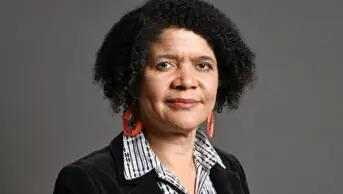
Yovna Lachanah from Moorfields Communications
Lead procurement pharmacist Zeinab Sulaiman spends her time managing the effects of medicines contract changes and holding supply managers to account. She is currently completing her diploma in procurement and supply.
What is your current role and how did you get there?
I work as the lead pharmacist for procurement and distribution at Moorfields Eye Hospital Foundation Trust (MEHFT). I did my preregistration training at MEHFT and then worked as the project support pharmacist from 2012, which involved looking at cost-saving schemes across the trust and ensuring good procurement practice was being implemented. Good procurement means making strategic sourcing decisions about medicines, rather than making ad-hoc purchases in response to individual user requests.
I slowly became familiar with the set standards and common procurement practices within the public sector, learning specifically about the various aspects of pharmacy procurement. This equipped me with the skills and expertise I needed to lead the pharmacy procurement department within MEHFT, a role that I took on in 2014. I have not looked back since taking the job — I learn something new every day and have the opportunity to share what I learn with the close network of other procurement professionals across the NHS region.
What training does your role require?
I applied for a sponsorship programme from the Procurement and Distribution Interest Group (PDIG) of the Guild of Healthcare Pharmacists, which was sponsoring selected pharmacy staff to undertake formal procurement qualifications. I secured the sponsorship and commenced my three-year diploma in procurement and supply from Chamber Business Training at the Chartered Institute of Procurement and Supply (CIPS) in 2013. I am now close to becoming a member of CIPS, or a MCIPS registered professional, which means that I will have achieved the internationally recognised gold standard in procurement.
What does a typical day in your role involve?
A typical day starts with a freshly brewed cup of coffee from one of the independent coffee shops around Shoreditch in London.
I then plan ahead for any meetings I have that day. I often meet with the account managers of our main suppliers to discuss supplier performance and adherence to contractual agreements.
I also spend a lot of time meeting with the internal stakeholders to discuss various saving opportunities that may affect their specific services. For example, if there is a product switch that will affect the theatre department, I meet with lead staff to discuss the possible benefits and implications of the switch and answer any questions they may have.
My role also involves working closely with a number of senior staff in pharmacy distribution who carry out the other stages of the procurement cycle, including a purchasing assistant and an invoice manager. We value the importance of teamwork and liaise closely to ensure we understand the latest changes in procurement and can communicate them across the department to allow maximum benefits in daily practice. For example, if we have a new contract in place that I negotiated, I need to ensure the purchasing assistant and the invoice manager are aware of the new pricing agreements.
I work closely with the formulary pharmacist to ensure the formulary decisions are in line with the current contracts that are in place and that sound procurement decisions are made in line with formulary changes.
What do you enjoy most about your role and what difficulties are you facing?
Working as a procurement pharmacist in a trust with over 20 satellite sites is often intense and requires hard work and organisation skills. I find this thrilling and enjoy being kept on my toes. Multi-tasking can be a challenge when working in such a busy and demanding environment and I often need to rely on several calendars to help me stay organised. Learning to allocate an appropriate length of time to each task and to delegate particular tasks are essential.
On account of the current financial situation affecting the NHS, all public sector procurement professionals are required to work with a tight budget and ensure that taxpayers’ money is used efficiently while maximising the benefits achieved from the resources. I work hard to develop partnerships with other healthcare professionals and suppliers to ensure that the best value is delivered and that patients are receiving the best possible clinical care. The balance is difficult to maintain but the challenge is enjoyable.


